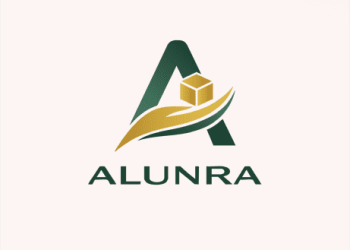Most of us have some form of personal credit, whether that’s a credit card, a personal loan, a store card, car finance, or an overdraft. Credit can be a convenient way to make large purchases while spreading the cost into regular, manageable payments. Most of the time, keeping on top of things and paying off what you owe isn’t a problem.
However, sometimes those debts can build up and become difficult to manage. You can feel trapped with the debt – you keep making your monthly payments, but the balance just doesn’t seem to be going down. It can be hard work to juggle different payments, at different times of the month and keep track of everything. It can be easy to miss a payment and fall into arrears, and it can be tough to get out of that situation if you’re already struggling to keep on top of things. It can feel like no matter what you do, the debt is never going to go away.
If you’re in that position and you’re a homeowner, then taking out a secured loan to consolidate your debts might be the right solution for you.
1. What is debt consolidation?
Debt consolidation is where you take out a secured loan to pay off your other debts. The proceeds of the loan go to your creditors to settle what you owe, leaving you with the secured loan to pay back.
You can pay off almost any debt with a secured loan – credit cards, personal loans, store cards, payday loans, car finance, and even other secured loans.
It might sound like a strange idea – taking on more debt to pay off existing debt – but providing that it’s done the right way, it can work and it can often save you money on a monthly basis.
It’s not something that everyone should do, and there are several alternatives that you should consider before making your final decision. But, in general, a debt consolidation loan is often the best solution available for homeowners who are having problems managing their debts.
In this blog post, we’ll look at debt consolidation loans in more detail, but before we do, let’s look at some alternatives…
2. Balance transfer;
If it’s credit card debt that’s causing you problems, it might be possible to transfer the balance to an interest-free card, which can make the payments more manageable and give you a better chance of paying it off.
There might be a fee to transfer the balance and you’re likely to need a good credit score to qualify for the best deals. You should also be aware that if you miss payments, you might lose any interest-free deal, so you could find yourself back where you started, paying off debt at a comparatively high rate. A balance transfer can work, but you need to commit to paying off the debt within the interest-free period to get the most benefit from it.
3. Arrangement;
If you’re struggling with payments, you could approach your creditors directly and ask to enter into an arrangement where they suspend any interest and charges, reduce your monthly payments, or give you a payment holiday.
This can work if you’re having short-term difficulty in making your payments – such as being in between jobs, or having to cover some unexpected costs, like a major vehicle or home repair. An arrangement can give you a bit of breathing space until things get back to normal, and you are able to make your regular payments again.
If the situation isn’t temporary, or you don’t see a time in the near future where you’ll be able to make your regular payments again, then going into an arrangement might make things worse, as you’ll be keeping yourself in debt for longer. It will also show on your credit file and can have an impact on your overall credit profile and your access to future mortgage deals.
4. Debt manegement plan (DMP);
If you have multiple debts, don’t want to approach your creditors yourself, or find that your debt is becoming unmanageable, then you could speak to a debt charity, such as StepChange, or a debt advice company. They will look at other debt solutions for you, such as setting up a debt management plan. They will arrange this with your creditors on your behalf.
Debt management plans can definitely help as they will reduce your payments to manageable amounts. But, because you are making reduced payments, it will take longer to pay off your debts and complete the debt management plan. Also, like an arrangement, a debt management plan will show on your credit file and your overall credit profile can be affected. Many mortgage lenders won’t offer you a mortgage if you have an active debt management plan.
Now we’ve looked at some of the alternatives, let’s look at the pros and cons of taking out a secured loan to consolidate debt.
5. First off, let’s look at the risks…
The main risk of taking out a secured loan to pay off debt is that you will often be replacing unsecured debt with a loan that is secured on your property. This means that your home is at risk if you don’t maintain your payments.
In taking out a secured loan, you’ll be using up some of the equity in your property. This might affect the availability of certain deals when it comes to re-mortgaging in the future, as depending on how much you have borrowed, the value of your property at the time, and how much of the loan you have paid off, your loan to value ratio might be higher than before.
Depending on how long the term of the secured loan is, you could increase the length of time the debt is to be repaid and could end up paying back more overall.
6. So, what are the benefits?
One of the main benefits of using a secured loan for debt consolidation is that your debt to the original creditors is paid off completely. It will be marked as settled on your credit file and you can put it all behind you.
The debt has gone. Cleared. Finished. Done.
The other big benefit in taking out a secured loan is that rates are generally a lot lower than most credit cards or personal loans and you can pay back the loan over a longer term – this means that your repayments will be much more affordable, and you’ll actually reduce your monthly outgoings.
You’ll have more money left over at the end of the month – money you can put into your savings or spend on the things you’ve not been able to. Sometimes, just knowing that there’s a little extra left over at the end of each month can give you some much needed peace of mind, knowing that you’re covered for any emergencies or unforeseen expenses.
Taking out a secured loan to pay off your debts can simplify your finances, by giving you one affordable, monthly payment. It’s much easier to manage than multiple payments due at different times of the month.
If you choose a fixed product when taking out your secured loan, then as well as coming out of your bank account at the same time every month, the payment will be the same for the duration of the fixed term. You’ll know exactly what’s coming out and when, which makes it a lot easier to budget and keep track of your outgoings.
As we’ve mentioned above, some debt solutions can show on your credit file and have a negative effect on your profile – which can impact you if you’re a homeowner, looking at re-mortgaging in the future. A secured loan will show on your credit file just like any other item of credit – but it won’t show that you used it to pay off debt, and as long as you maintain your payments, it won’t have any negative effect on your credit profile.
7. If you’re thinking about consolidating debt, speak to Dragon Finance.
As with any big financial decision, it’s important to get the right advice. If you’re a homeowner and are having problems with your debts, or you just want to find out some more information, then contact them via their website.
Their qualified and experienced advisers have found debt consolidation loans for hundreds of customers and are there to give you the right advice. Even if you’ve missed some payments or defaulted, they can find a solution that works for you.
Contact them about a secured loan and let them help you get rid of your debt, save you some money and give you some peace of mind.





























